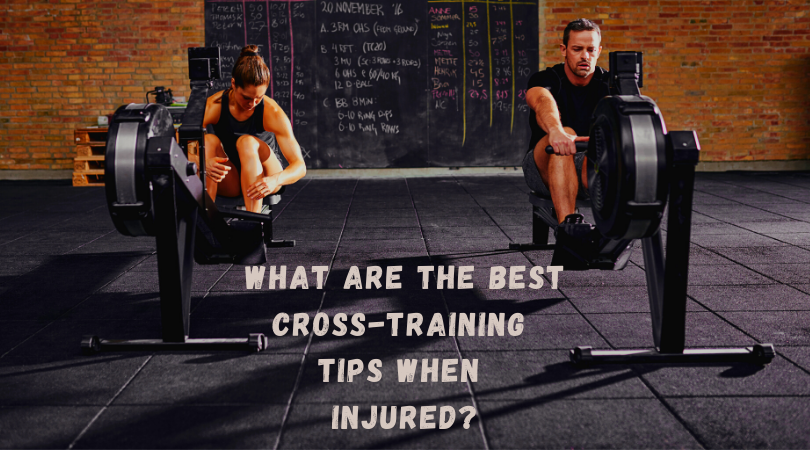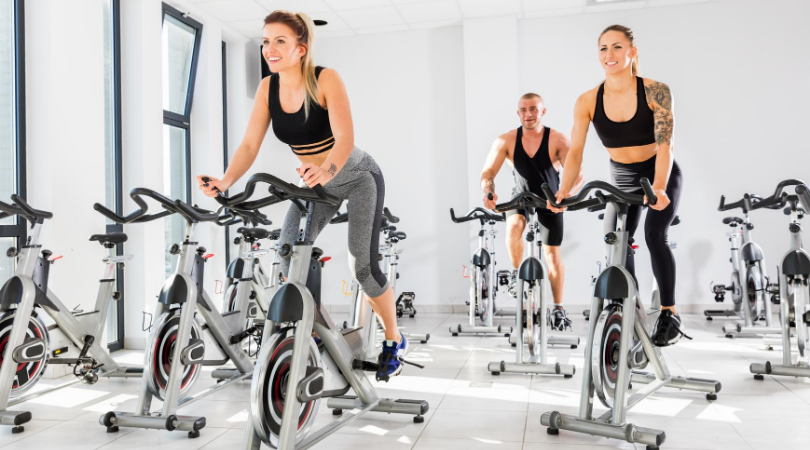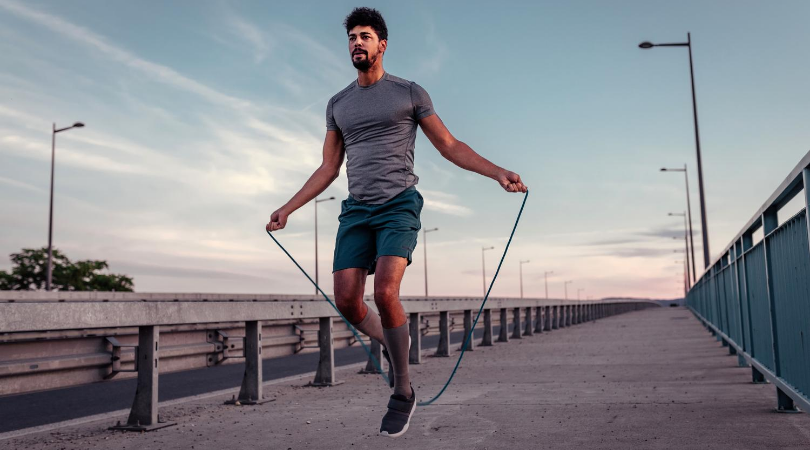What are the best cross-training tips when injured?

Injured runners just want to keep running, and certain circumstances will permit running. But did you know you will recover faster if you learnt how to implement some cross-training into your recovery plan? This is because it is often unhelpful to completely rest when injured. Plus, if it is done correctly, it has the added benefit of maintaining your aerobic fitness during this frustrating time. Here are several options and how to best use each.

Cross-training #1: Cycling
Jumping on the bike can be great for calf, achilles and hamstring injuries because it still activates these muscles without a huge spike in load. This can be performed at different intensities so be sensible. If you are suffering from patellofemoral pain, this may not be a great option due to a large range of movement mixed with the repetitive nature. I personally use Zwift more often when dealing with an injury to keep things entertaining.
Cross-training #2: Elliptical cross-trainer
A similar running action without the sudden impact when running can be extremely beneficial. This is great for plantar fasciitis of low irritability, calf strains and almost every injury unless you need to limit weight-baring. If weight-baring is an issue (high irritability plantar fasciitis/recovering stress fractures) consider my next option.

#3: Swimming
I know, I know. A lot of us don’t like swimming, but this is a great option for vascularisation with the option to kick in the water as little, or as much as your injury allows. Ankle injuries may be problematic and certain knee issues if you decide to perform breaststroke however this option is usually the safest.
#4: Skipping
Skipping can be intense, but one minute on followed by one minute rest, repeated as many times as your fitness (or symptoms) allows can be a nice workout. This isn’t recommended for calf strains if experiencing pain but can be amazing for maintaining fitness if dealing with hip, knee or thigh issues.

Resistance training
Resistance training will be highly individualized and requires a trained health professional to tailor a program for you. If you enjoy any of these cardio options above, please consider them if injured and avoid complete rest.
Relevant Blog posts
- The dangers of rest: Why you SHOULDN’T rest your running injury
- Your running injury road to recovery
- Are you a robust, fragile or anti-fragile runner?
- How to recognize the boom bust injury cycle
